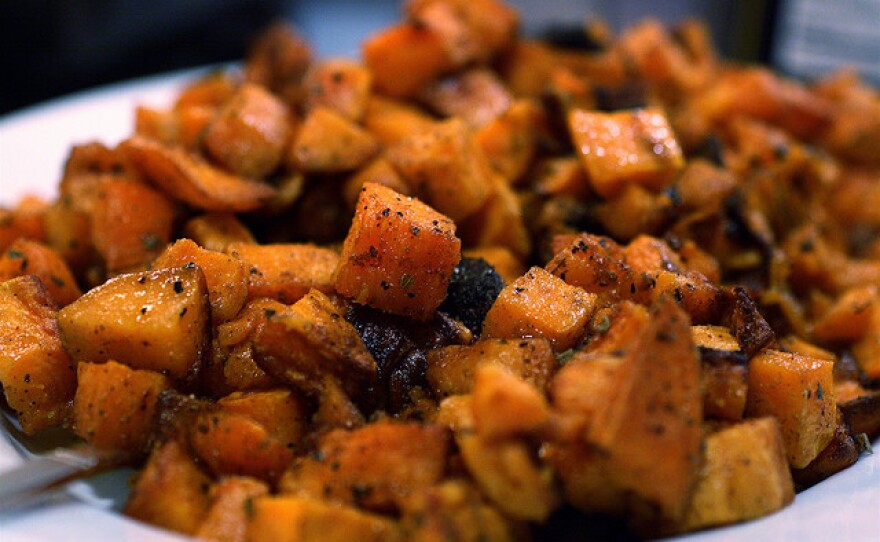Have you ever wondered how to revamp your eating habits during cold and flu season to strengthen your immune system? There are five simple foods you can add to your diet to help you reach immune health and achieve nutritional balance.
This week on “Take Care,” Michelle Dudash discusses immune boosting foods. Dudash is a registered dietician, a Cordon Bleu-certified chef and the author of “Clean Eating for Busy Families: Get Meals on the Table in Minutes with Simple and Satisfying Whole-Foods Recipes You and Your Kids Will Love.”
While the common cold may be inevitable, there are things you can do to stay relatively healthy and prepared for any cold season.
“We actually do have control over boosting our immune system,” Dudash says.
One immune boosting food is sweet potatoes.
“Sweet potatoes are really high in vitamin A,” Dudash says. “Vitamin A is known as an immune booster.”
Dudash says that vitamin A helps keep the skin and digestive system healthy.
Citrus fruits such as oranges and lemons are also immune boosting foods.
“Spritz some lemon juice on your foods whenever you can,” Dudash says.
Citrus fruits also contain folates and vitamin A. Dudash explains that certain combinations of vitamins and nutrients are particularly advantageous when trying to stay healthy.
“You’re getting the big package of all those immune boosting nutrients,” Dudash says. “Plus some of those trace nutrients like vitamin B-6 which also is important for immune health.”
According to Dudash, the majority of Americans are getting their fill of vitamin C. However, there are certain groups of people at risk.
“Smokers actually have a higher need for vitamin C,” Dudash says. “Women that are breastfeeding, women that are pregnant -- they have higher needs as well.”
Dudash says the body does not store vitamin C for an extended amount of time so it’s important to maintain a constant intake.
Oily fish, like anchovies, halibut and salmon, contain omega-3 and are high in protein -- which helps malnutrition and your immune health.
Dudash recommends eating fish twice a week, two ounces per serving.
Beef is a nutritional powerhouse, Dudash says. It’s full of zinc (try baked beans or any kind of bean if you’re a vegetarian) and can be easily incorporated once or twice a month into your diet.
This isn’t to say you should eat beef every single day but don’t be afraid of beef,” Dudash says.
Nuts and seeds also contain protein. Sunflower seeds, for example, are slightly higher than almonds in vitamin E. Dudash recommends both of these nuts. Vitamin E, Dudash says, acts as an antioxidant and helps improve immune function. Dudash says that people, especially the elderly, are not consuming enough vitamin E.
Don’t like raw nuts? Dudash adds that almonds do not lose their benefits if they’re eaten roasted or even salted.
“Go for what you’re going to actually enjoy and consume for the long term,” Dudash says. “Food is all about enjoyment and taste is the number one reason we eat the foods we eat.”











